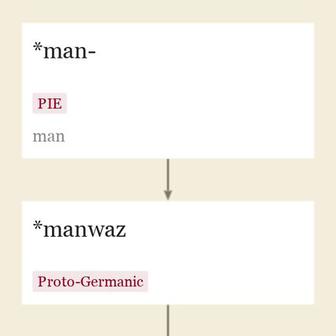everyman n.
name of the leading character in a popular 15c. morality play; from every + man (n.).
Entries linking to everyman
"
Also a pronoun to Chaucer, Shakespeare, Spenser, "
Every now and then "
That is to ſay, they affirm, that once upon a Time (tho' they never yet could tell when) all Mankind were upon a Level, and that there was no ſuch Thing as Government in the World; and that Tom, Dick, and Harry, ay, every individual Man, Woman, and Child, had a Right to the whole World. [Charles Leslie, "A Short and Eaſie Method with the Deists," London, 1723]

"
Sometimes connected to root *men- (1) "
Specific sense of "
Man also was in Old English as an indefinite pronoun, "
As "
Man-about-town "
So I am as he that seythe, 'Come hyddr John, my man.' [1473]
MANTRAP, a woman's commodity. [Grose, "Dictionary of the Vulgar Tongue," London, 1785]
At the kinges court, my brother, Ech man for himself. [Chaucer, "Knight's Tale," c. 1386]
updated on January 08, 2013
- intercession
- intercessor
- interchange
- interchangeability
- interchangeable
- intercoastal
- intercollegiate
- intercom
- intercommunicate
- intercommunication
- intercommunion
- interconnect
- interconnectedness
- intercontinental
- intercostal
- intercourse
- intercrural
- interdepartmental
- interdependence
- interdependency
- interdependent
- interdict
- interdiction
- interdisciplinary
- interest